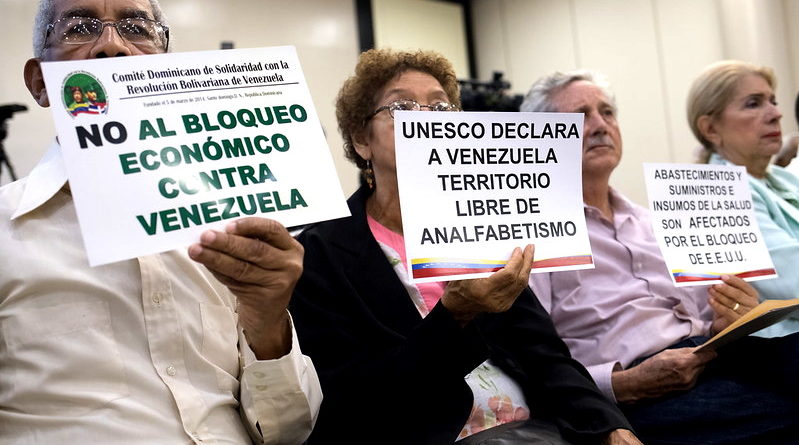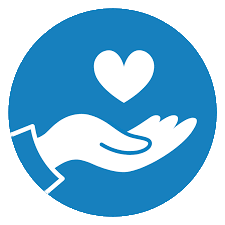COVID-19 Pandemic Spotlights Ethical Dimension of Hemispheric Affairs
Support this progressive voice and be a part of it. Donate to COHA today. Click here
By COHA’s Editorial Board
From Washington DC
The defense of human life in the Americas, in the face of the novel coronavirus pandemic, has become an ethical imperative for progressive forces throughout the region and beyond. The manner in which each government is now responding to the crisis reveals a great deal about their respective social and economic priorities. Equally important, the response of civil society, not always in tune with constituted power, and even in some cases at odds with it, reflects something about the moral fabric of our peoples in this moment of crisis.
Some governments, such as the United States and Brazil, have hesitated to aggressively combat the pandemic, weighing the impact of timely social distancing and national quarantine, which China had demonstrated can save thousands if not millions of lives, against the “health” of markets. This is a false dichotomy. The health of an economy ought to be measured by the degree to which it meets human needs, not how much it puts in the pockets of ruling elites or buttresses the stock market. Moreover, empirical evidence demonstrates that nations which hesitate to effectively respond to the pandemic at an early stage are lost; their rates of infection and mortality become unconscionably steep, leading in any case to an economic downturn.
CODIV-19, a moral matter for governments
It is moments such as this that a clear moral compass for guiding public policy is essential. As the Argentine-Mexican philosopher, Enrique Dussel points out, an ethics of liberation advances human life in community by means of democratic procedures and opts for what is feasible under the given circumstances. If we translate these integral principles into public health policy, responsible governance requires measures be adopted with constituent input and implemented in a timely fashion against the spread of COVID-19. It also requires that healthcare providers be equipped with the tools necessary for the treatment of all those who have fallen ill as a result of infection. Any actions which hinder such measures and practices would violate these ethical principles.
It does not go unnoticed on the world stage, even in Europe, that it is the so called “authoritarian” governments–China, Cuba, and Russia–which have come to the aid of some of the hardest hit countries. It is remarkable, but in keeping with Cuba’s international health mission, that this Caribbean island, despite the economic hardship imposed by six decades of US embargo, has deployed thousands of health professionals in a growing number of countries, regardless of ideological differences.
Sanctions constitute a crime against humanity
COHA urges that this is no time to draw hard partisan lines that compromise international cooperation; we are in this together. It is time for the US to end the embargo and cooperate with Cuba. Even the extreme right wing government of President Jair Bolsonaro in Brazil, which had expelled Cuban health professionals, has asked them to return.
The US response to the pandemic is also remarkable, but for less than honorable reasons. Washington has continued to impose crippling economic sanctions against Venezuela, despite pleas from the European Union and the UN High Commissioner for Human Rights to suspend the sanctions in order to save lives.
These sanctions against Venezuela, which have already killed thousands, arguably constitute a crime against humanity. They shock the conscience even more in the context of the pandemic.
What is most outrageous, is that at the very time Venezuelans are united against the pandemic and dialogue between the government and opposition is making progress, the US has issued unsubstantiated charges of drug trafficking against top Venezuelan government officials. The charges appear to be politically motivated, as the US maintains close alliances with Colombia, from which most of the illicit drug trafficking originates, as well as Honduras, where its government, led by the de facto president Juan Orlando Hernández, is the subject of accusations of illegal drug-dealing and complicity with national and international cartels. Washington, it appears, has taken collective punishment against Venezuelans to an extreme that only the most servile governments and the Secretary General of the OAS are willing to endorse.
The rates of infection and mortality due to the pandemic in the region is highly volatile and could change any minute. The data indicates that prompt intervention by the state in partnership with civil society to put in place appropriate public health measures and quickly mobilize medical personnel and resources can flatten the rate of infection and save lives.[1] Where there are deficiencies in a nation’s public healthcare system, international solidarity is critical to helping fill those gaps.
It is time the US and OAS become benevolent forces in the region
This is a time for a unified fight against COVID-19 in the Americas, yet the OAS continues to sow discord. COHA has taken an editorial position denouncing the reelection of Luis Almagro as Secretary General of this multilateral organization. This critique is consistent with the concerns expressed by our late founder and director, Larry Birns, who was very critical of the extreme partisanship with which Almagro had been leading the OAS. As a full partner of the Trump administration, Almagro has targeted Venezuela, Nicaragua, and Cuba for regime change. He was also instrumental in perpetrating the coup in Bolivia in October 2019 and endorsing the 2017 electoral fraud in Honduras. His selective indignation over human rights abuses resulted in the OAS looking the other way during crackdowns against legitimate dissent in Chile and Ecuador, and has put him squarely on the side of the governments of Colombia and Honduras where human rights abuses are rampant. He is the wrong person to lead the OAS, especially at a time when hemispheric unity ought to transcend partisanship.
Larry Birns never gave up hope that someday the United States would become a benevolent force in the Americas, and assume a posture of mutual respect among sovereign nations instead of pursuing a coercive Monroeism. Only in this way can we ever hope to build a world “in which many worlds can fit” (to use a Zapatista expression). Yet that will only happen when we get our own house in order: establish a universal health care system and deal effectively with the CODIV-19 pandemic; end the persecution of immigrants; reform the racist criminal justice system; get big money out of politics; address growing economic and social inequality; and overcome the multiple hierarchies of domination which informs domestic and foreign policy.
End Notes
[1] https://www.as-coa.org/articles/where-coronavirus-latin-america. See also Worldometers.info: https://www.worldometers.info/coronavirus/



